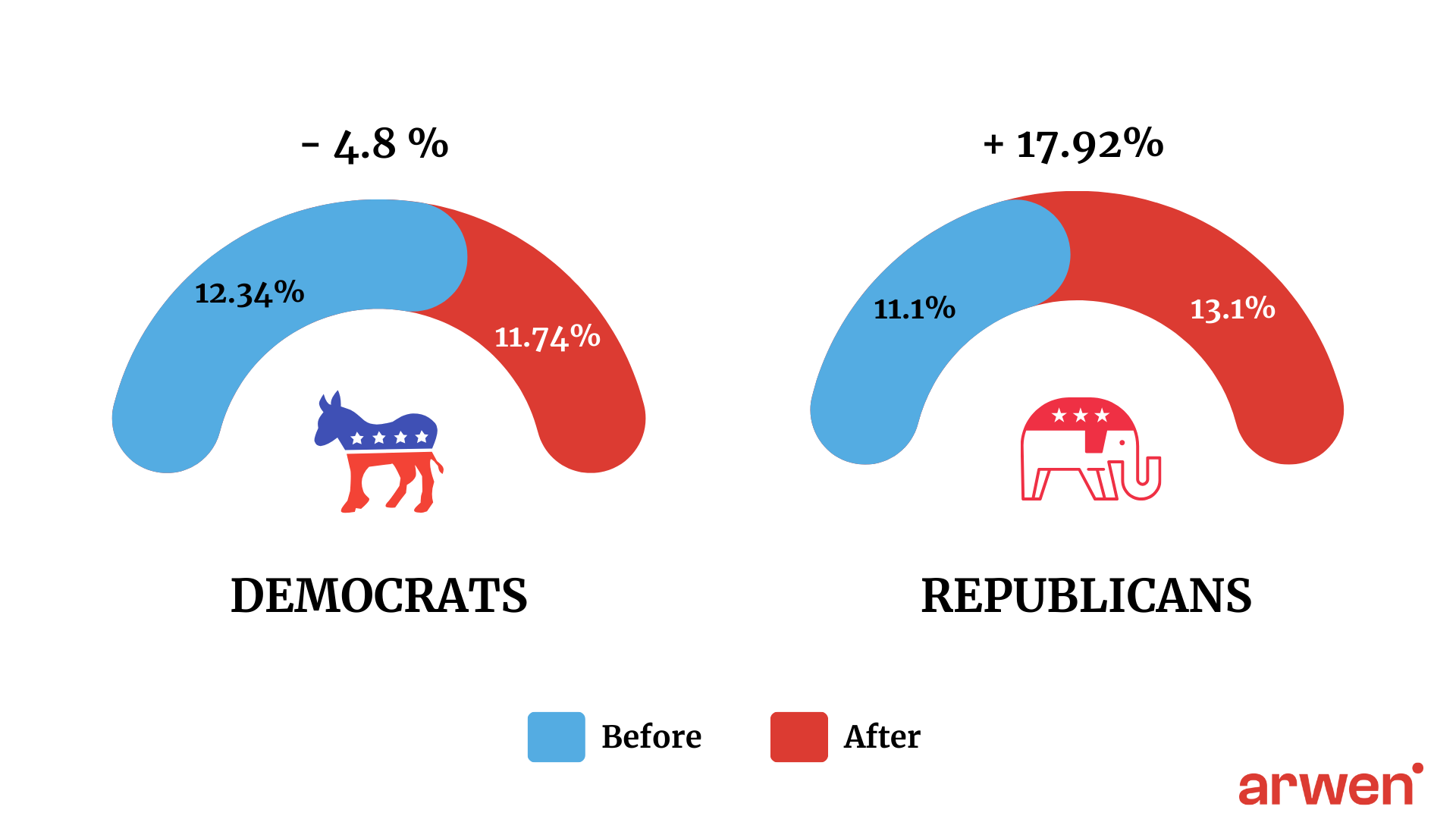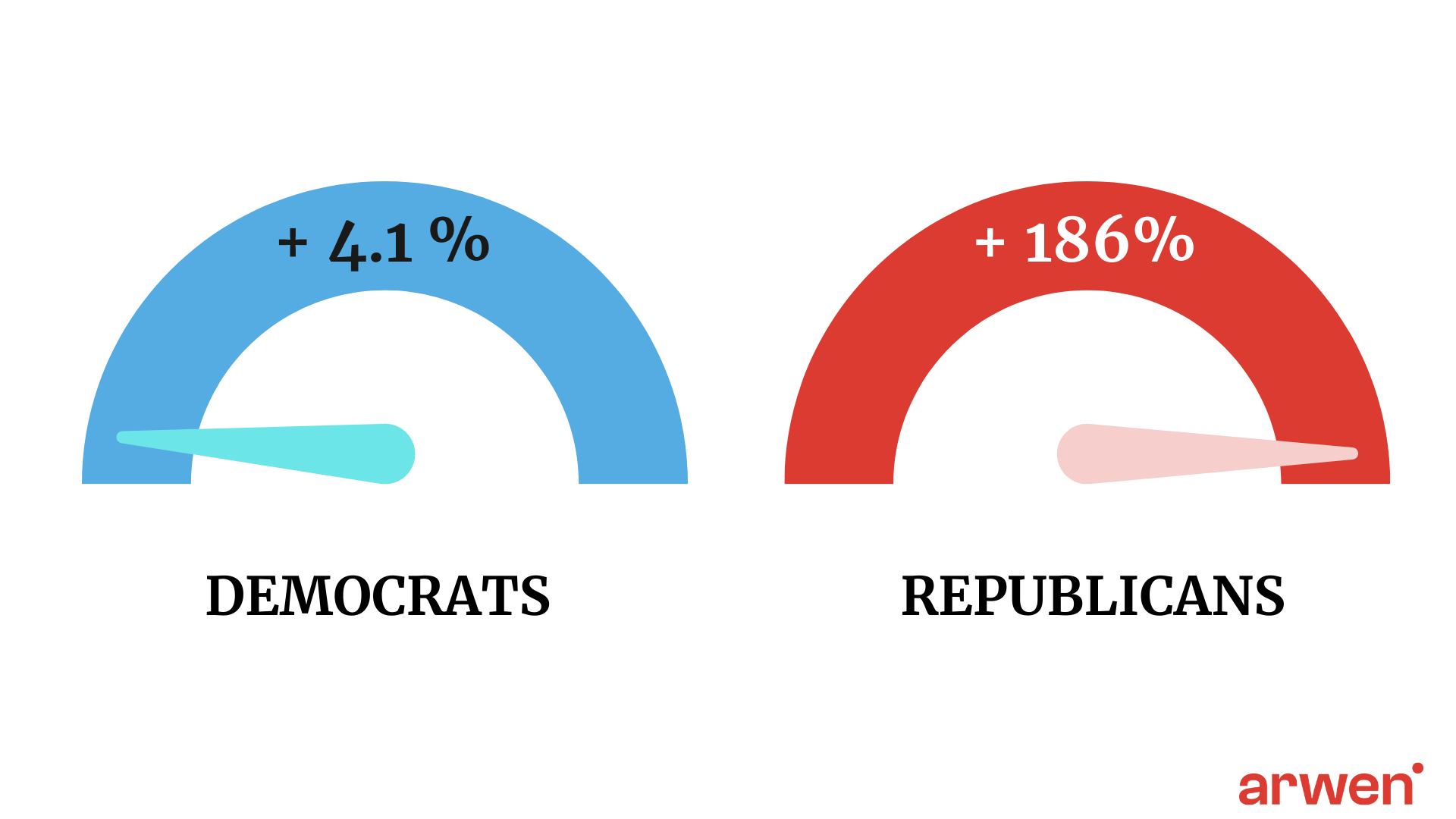When news of the assassination attempt on Donald Trump broke on July 13th, social media, especially X (formerly Twitter), became a hub of heated discussions. People flocked to the platform to express their views, leading to a noticeable shift in the tone of conversations. At Arwen, we used our AI-powered social media analysis tool to dive into the data, focusing on how this event impacted the online behavior of supporters of both major political parties—those who mentioned Democrats, Republicans, Biden, or Trump in their tweets.
A Closer Look at Toxic Comments
Before and after the incident, we observed significant changes in the level of toxic comments from users who identified as either Democrat or Republican supporters. Here’s what we found:
-
Democrat Supporters: Prior to the attempt, 12.34% of tweets from Democrat supporters were flagged as toxic by our AI. After the assassination attempt, this figure dropped slightly to 11.74%, a difference of 0.6, representing a decrease of about 4.86%. This suggests that the event may have prompted some Democrat supporters to tone down their rhetoric, possibly due to the gravity of the situation.
-
Republican Supporters: The change among Republican supporters was more drastic. Toxic comments in their tweets increased from 11.10% before the attempt to 13.09% afterwards, representing a 17.93% rise. This spike indicates that emotions ran higher among Republican supporters, leading to more aggressive online behaviour following the news.

Threatening Comments: A Concerning Trend
While toxic comments can be troubling, threatening comments are even more concerning. We observed notable changes in this area as well:
-
Democrat Supporters: The percentage of threatening comments from Democrat supporters saw a slight increase, moving from 0.48% to 0.50%. Though the rise of 4.17% is modest, it indicates that a small fraction of Democrat supporters became more aggressive in their language after the event.
-
Republican Supporters: The increase in threatening comments among Republican supporters was much more significant. These types of comments jumped from 0.38% before the incident to 1.09% afterwards—a sharp increase of 186.84%. This suggests that the assassination attempt may have significantly escalated tensions and fear among Republican supporters, leading to a surge in threatening rhetoric. *The “threat” statistic after the event includes examples such as “they tried to kill Trump”.

Understanding the Impact on Online Discourse
This data shows how a major political event like an assassination attempt can quickly change the tone of online conversations. Among Republican supporters, the event seemed to fuel a rise in both toxic and threatening comments. In contrast, Democrat supporters showed a slight decrease in toxicity but a small increase in threats.
These insights are crucial for understanding the dynamics of political discourse on social media, especially during critical events. They highlight the importance of tools like Arwen’s AI, which helps platforms monitor and moderate these conversations to keep them safe and constructive.
The Role of AI in Shaping Online Conversations
At Arwen, we believe that AI can transform how we engage online. This analysis highlights just how critical AI is in identifying and responding to shifts in online behavior, especially during emotionally charged events. By closely monitoring changes in toxicity and threats, AI doesn’t just react to problems—it helps prevent them from escalating, fostering a safer, more respectful digital environment.